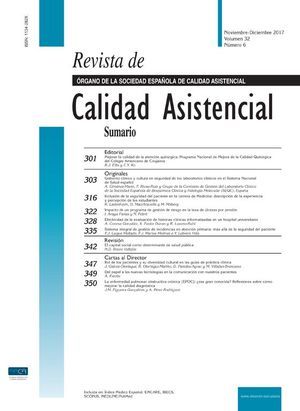Natural language processing (NLP) is a branch of artificial intelligence (AI) that deals with analyzing, understanding, and generating human language. ChatGPT (GPT3.5) and GPT4 (OpenAI, San Francisco, CA, USA) are two of the most advanced technologies in the field of AI and NLP.1,2 These generative models can produce coherent and relevant texts from an initial input, such as a phrase, a word or even an image. Both use a deep neural network architecture called “transformer”, which allows them to learn from large amounts of textual data and capture the semantic and syntactic relationships between words. They can be easily used by healthcare managers for non-clinical tasks, but not without risks.
Strategy, quality, knowledge and innovationHealthcare managers are responsible for planning, organizing, directing, and controlling the delivery of health services.
NLP tools can help them design strategic plans based on data analysis, trends, and scenarios, as well as evaluate the impact and effectiveness of the actions implemented. They could also facilitate communication and collaboration among the different actors involved in health management, such as professionals, administrators, patients, and external entities. Moreover, it could contribute to improving the quality and safety of health care by monitoring and auditing processes, detecting, and preventing errors, managing risks, generating alerts and recommendations, and promoting good practices and quality standards.
Healthcare management involves various activities that require effective knowledge management (KM) to support decision-making, learning and professional development, and innovation. NLP tools can enhance KM by enabling the collection, organization, storage, access, and dissemination of information. They can also foster the exchange of information and knowledge among the different actors in the system. Furthermore, this technology can facilitate innovation by identifying opportunities for improvement, generating creative ideas and novel solutions, evaluating the feasibility and potential of proposals, and implementing and disseminating projects.
Administrative and operational tasksAdministrative and operational tasks are time-consuming labour-intensive low-value processes, that must be managed and overseen by healthcare managers. Some potential areas where NLP could be useful are:
- -
Writing the documents that specify the technical and economic conditions of public procurement, as well as reviewing and correcting them.
- -
Drafting of reports that describe the development and results of a project or an activity, using relevant sources of information and generating a coherent and structured text.
- -
Programming of outpatient visits with different agents involved in an administrative process, such as suppliers, customers, or collaborators, by generating personalized messages and managing agendas and calendars.
- -
Digital twins, which are virtual representations of physical entities or processes, by integrating data from various sources and generating simulations and predictions.
In the field of human resource management and people care processes, NLP technologies could be applied for different tasks such as:
- -
Work shift scheduling: NLP could optimize human resource allocation and handle work shift requests and changes.
- -
Claims: NLP could process employee claims and offer responses, identify root causes, and suggest actions. This could improve conflict resolution, work environment, transparency, and fairness.
- -
Chatbot for administrative queries3: NLP could answer common questions from employees, provide information and documents, and redirect complex or sensitive queries to human agents. This could reduce human resources workload and improve internal communication, satisfaction, and engagement.
- -
Preparation of certificates: NLP could generate personalized certificates for employees who request them, with specific details and achievements. This could facilitate professional development, labour mobility, loyalty, and motivation.
The proper use of NLP tools can exponentially multiply the value generated by healthcare systems, although it is necessary to evaluate beforehand the ethical, legal and social challenges.
To increase healthcare productivity and efficiency, healthcare professionals need to incorporate AI-based tools. But more importantly, they will be key to supervising the tools to avoid negative consequences or biases.4
There are concerns about possible breaches of data protection regulations in the training process this technology. The legal responsibility in the use of these tools must be assessed in case of making important medical decisions or private information of patients, and it will be necessary to implement adequate and sufficient measures to protect the privacy and security of patient and user data. The European Parliament is already working on a common regulation for artificial intelligence in Europe.5
One of the key aspects will be the security of computer systems.6 The industry is already starting to react with cybersecurity solutions that use AI to speed up threat detection and response.
In summary, formulating the right questions is key to obtaining useful and contextually relevant answers for non-clinical healthcare management. This discipline is called prompt engineering. Therefore, a central element will be the training of healthcare managers in the use of AI. It is a challenge because the speed of new innovative processes far exceeds the capacity of systems to offer regulated training, which is leading many professionals to resort to self-training. It is important that healthcare managers and professionals can be trained to use these tools properly, so clear procedures and protocols must be established for their use.
FundingNo funding was received to support the elaboration of this manuscript.







